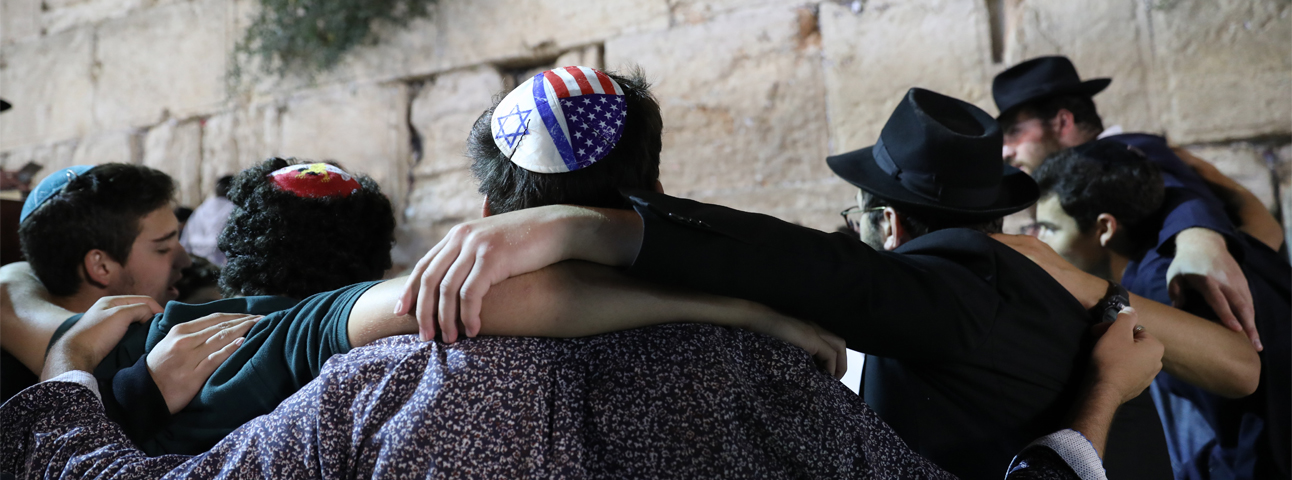Solidarity is a Must for the Survival of the Jewish people
Jewish solidarity is an existential imperative. As we mark the solemn day of Tisha B'Av, Dr. Friedman reflects on the importance of strengthening the common denominator among all Jewish communities.

Flash 90
In The Jewish War, the historian Josephus Flavius attributes the Jews’ defeat by the Romans and the destruction of Jerusalem to the internal conflicts among the Jews, both outside and especially inside, Jerusalem. Then, as now, the Jewish people were divided between the Land of Israel and the Diaspora, and the domestic disagreement had an impact on the entire Jewish world. Tisha B’Av is an opportunity to look ourselves in the mirror and come to the full realization of the price paid for the split in the Jewish people and internalize the vital need to preserve Jewish solidarity — within each community — in Israel and abroad, and in the Jewish people as a whole.
After a crisis-ridden century, in the early 21st century, Israel and the Jewish people are stronger than ever. Israel is a regional power, an influential force in the world, and at the pinnacle of several important international indices. Not a single Diaspora community faces an existential threat; despite the surge in anti-Semitism, the Jews’ situation is strong and secure. The greatest threat in this idyllic picture is to the unity of the Jewish people and the ability to maintain Jewish solidarity. This applies to the Jewish communities abroad, to Israeli society, and to the relations between Israel and Diaspora Jewry, especially the Jews of the United States.
Although it is true that tension between Israel and Diaspora Jews has existed ever since the country was born, in recent years the disagreements have been more raucous than ever. The critical remarks, mainly by Jewish leaders in North America, but also by prominent Israelis, are harsher; American Jews’ support for and identification with Israel is declining; and the recognition of an obligation to the Jewish people and its shared destiny is being eroded.
The roots of these disagreements lie in the lack of political consensus, the debate as to the definition of the Jewish people, and the relationship between religion and state in Israel, all of which influence Israel’s relations with the Diaspora. But these are only symptoms of more profound differences. While Israeli Jewish society is becoming more traditional and conservative and moving towards the right side of the political spectrum, many Jews in the United States, especially of the younger generation, are moving in the opposite direction: they are more progressive, tend to identify with the American left, and attach less importance to the particularistic Jewish identity, and in some cases — are even uncomfortable with it.
Tisha B’Av is our opportunity to examine trends in the Israel-Diaspora relationship, especially with American Jews, and to think about ways to prevent the gulf from growing even wider. The deep-seated changes in Israeli society and in the character of Jewish communities abroad are a fact; accepting this reality is the first step towards healing the wounds. The realization that Israeli society will not embody the utopian vision entertained by some Diaspora Jews and will not be the exemplary society they imagine, may require them to give up the dream; but it is essential for repairing the situation. We Israelis, also must understand, defer to, and respect the fact that American Jews relate to their Jewishness and identity in a different way; Such an understanding and respect are crucial in order that they continue to feel a meaningful bond with Israel.
The link among the various segments of the Jewish people is not a privilege or identity “pendant,” but an existential imperative. Jewish solidarity, along with a willingness to view all Jewish communities as members of one people, are the basis and key for the survival and development of the Jewish people and Jewish identity. History teaches us that when the common denominator among us is lost and individuals stop seeing themselves as members of one family, the nation’s very physical existence is endangered as well.
The article was published in the Times of Israel.
